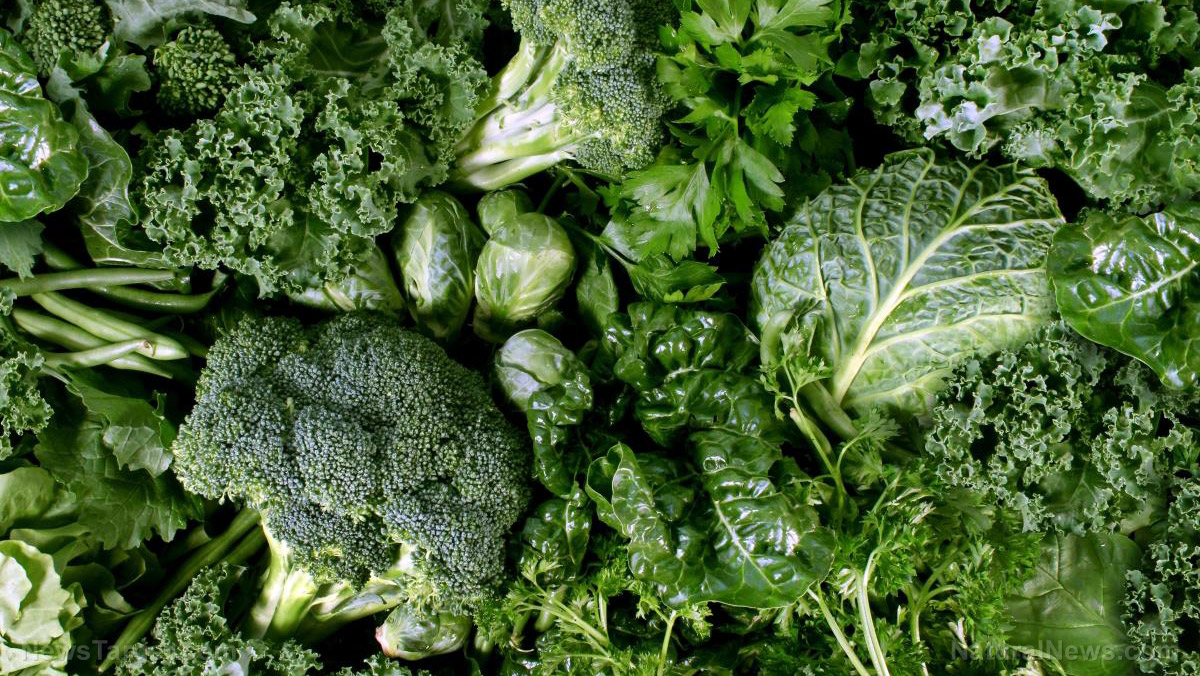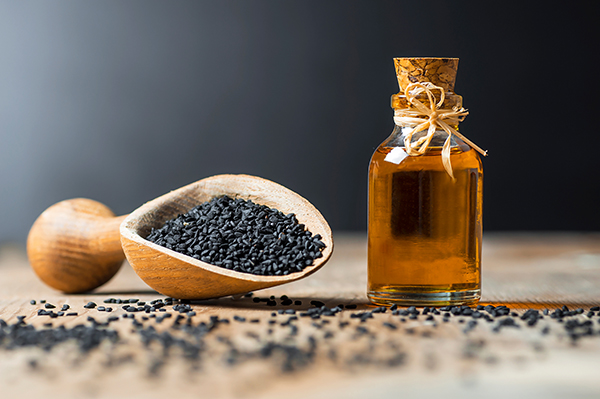Study: Walnuts boost gut and heart health by promoting healthy gut microbiota
11/28/2022 / By Evangelyn Rodriguez

Walnuts certainly top the list of superfoods that are good for the heart. As shown by multiple studies, eating walnuts regularly can help reduce your risk of cardiovascular disease, thanks to the ability of walnuts to lower low-density lipoprotein (LDL) cholesterol levels. A recent study by American researchers also reveals that the heart benefits offered by walnuts may be attributed to their positive effects on your gut microbiota.
The key players in walnuts’ heart benefits
Walnuts are known for their incredible nutrient profile, which is why experts recommend snacking on walnuts for a healthy heart. Walnuts are rich in dietary fiber that can help lower bad cholesterol (LDL) levels and support healthy blood pressure. Walnuts also contain high amounts of arginine, an amino acid required for the formation of nitric oxide (NO). NO is a chemical that helps relax blood vessels, thus easing blood flow to and from the heart.
Walnuts are a great source of healthy polyunsaturated fatty acids, particularly the omega-6, linolenic acid, and the omega- 3, a-linoleic acid. In fact, their high essential fatty acid content is what makes walnuts unique compared to other nuts. Like fiber, omega fatty acids can help reduce your risk of heart disease by lowering bad cholesterol levels and increasing good cholesterol, or high-density lipoprotein (HDL), levels.
Walnuts contain plenty of other heart-healthy nutrients, such as copper, folate, potassium and vitamin E. Both copper and potassium are important minerals for maintaining healthy blood pressure, while vitamin E is a powerful antioxidant that has been shown to reduce heart attack risk by protecting against oxidative stress. Folate has also been linked to a lower risk of cardiovascular disease, thanks to its ability to lower blood homocysteine levels.
Aside from these nutrients, walnuts also contain an abundance of phytonutrients that are good for your heart. One example of these phytonutrients is ellagic acid, an antioxidant polyphenol that can protect against cardiac arrhythmia, or irregular heartbeat. Ellagic acid has also been reported to support healthy cardiovascular functions by helping regulate heart rate and blood pressure.
Ellagitannins are another example of walnut polyphenols that benefit the heart. Ellagitannins are also antioxidants and are uniquely high in walnuts. According to a study published in Molecular Aspects of Medicine, ellagitannins can help reduce the formation of blood clots and protect against inflammation as well as atherosclerotic plaque formation.
Walnuts increase gut microbes that support gut and heart health
Aside from heart benefits, walnuts are also known for their positive effects on gut health, particularly the beneficial changes they bring to the human gut microbiota. To explore the link between the gut and heart benefits of walnuts, researchers from the Pennsylvania State University and Juniata College recruited 42 individuals at increased risk of cardiovascular disease and analyzed their gut microbial differences following changes to their diet.
The participants first followed the standard Western diet for two weeks before implementing certain changes. For six weeks following the two-week Western diet, the first group replaced the saturated fats in their diet with walnuts. The second group also switched to a healthier diet with a similar fatty acid profile as the first group’s, albeit devoid of walnuts. The third group also did not incorporate walnuts into their diet, but consumed oleic acid instead of a-linolenic acid.
The researchers reported that all three diets had a different effect on the participants’ gut microbial composition. After switching from the Western diet, the first and second groups saw a significant increase in the populations of Roseburia, Eubacterium eligens and Butyricicoccus bacteria in their gut. The researchers noted that the increase in Roseburia is beneficial for gut health, as these bacteria suppress the conversion of bile salts into secondary bile acids, which can damage your intestinal lining.
Walnut consumption also increased the populations of Leuconostocaceae and Ruminococcaceae bacteria — microbes that help maintain your gut lining. Leuconostocaceae, as well as Roseburia and Eubacterium, are known to produce butyrate, a short-chain fatty acid that serves as the main energy source of cells that line the inner surface of your small and large intestines. The researchers believe that enrichment of these gut bacteria can help decrease intestinal permeability and protect against “leaky gut.”
Participants on the walnut diet also experienced an increase in Gordonibacter bacteria, which are known to metabolize ellagitannins to urolithins like urolithin A. According to a study published in Trends in Molecular Medicine, only 40 percent of people can naturally convert this beneficial compound at meaningful levels from dietary precursors. Aside from supporting muscle and brain functions and exerting anti-aging effects, urolithin A has been found to improve heart health and protect against heart attack and atherosclerosis.
Other gut bacteria enriched by walnut consumption that benefit the heart are Eubacterium eligens and Lachnospiraceae bacteria. Research suggests that Eubacterium eligens is inversely associated with changes in different measures of blood pressure, so having greater numbers of this bacterium may positively influence blood pressure control. An increase in Lachnospiraceae gut bacteria, on the other hand, is associated with lower blood pressure and lower total blood cholesterol and non-HDL cholesterol levels, clearly showing that the heart benefits of walnuts are linked to their positive effects on gut microbiota.
Watch the video below to learn more about how eating walnuts can boost your overall health.
This video is from the Groovy Bee channel on Brighteon.com.
More related stories:
Eating walnuts and following a low-saturated fat diet can decrease overall heart disease risk: Study.
Orange peels may help boost heart health by modifying gut microbiota.
A healthy gut means a healthy body – but how does it work?
Nuts for better digestive health: Eating walnuts found to prevent ulcerative colitis.
Sources include:
Submit a correction >>
Tagged Under:
alternative medicine, digestion, food cures, food is medicine, food science, functional food, gut health, gut microbiota, health science, natural health, natural medicine, nutrients, phytonutrients, prevention, research
This article may contain statements that reflect the opinion of the author
RECENT NEWS & ARTICLES
COPYRIGHT © 2017 ALTERNATIVE MEDICINE NEWS




















